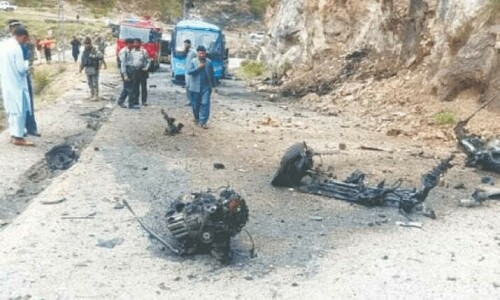A WEEK after the double disaster that triggered the explosions and radiation leaks at the Fukushima Daiichi nuclear reactor, Japan raised the accident level at the facility from four to five on a seven-point international danger scale for atomic accidents. This put the Fukushima situation in the category of an “accident with wider consequences”. On the same scale, the 1986 Chernobyl disaster — the worst nuclear accident the world has ever experienced — is rated at the maximum level of seven.
Japan is fire-fighting to the best of its ability. Given the context of its 1945 atomic tragedy, it can be safely said that Japan would have ensured that safety measures at its nuclear installations were as stringent as possible. Perhaps that is why many countries are heeding lessons from the tragedy, realising that the seemingly win-win option of nuclear energy must be revisited. In recent years several people, including environmental activists, have accepted the idea of nuclear power plants as clean and efficient sources of energy generation. Nuclear plants have been hailed as power generators of the future, helping countries meet their carbon emission- reduction targets. Yet the fact is that nuclear technology is dangerous technology, and as the predicament faced by Japan illustrates, man can guard against any force save that of nature.Hence the scramble to review safety levels of nuclear units and to focus, in particular, on contingency plans in case of a natural disaster. Many countries are facing renewed protests by the anti-nuclear lobby. US President Barack Obama has ordered a comprehensive review of the country's nuclear plants. Germany, too, has put in place a moratorium on extending the operation of existing plants in order to review safety standards — even though this is likely to lead to an increase in carbon emissions. What is needed now is a global debate on the viability of nuclear energy as a sustainable option. People's faith in nuclear energy has been shaken, and their governments must be sensitive to their sentiments. Further, it is time the world started looking for alternative yet viable and sustainable solutions to its energy requirements.











































Dear visitor, the comments section is undergoing an overhaul and will return soon.